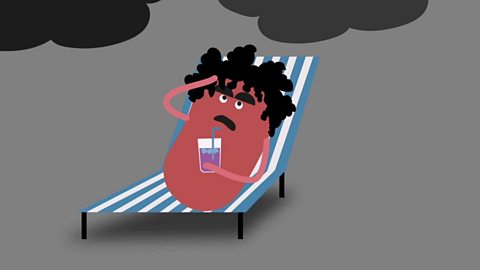Healthy relationships
You know when you’re in a healthy relationship because you feel happy to see and spend time with certain people.
They could be members of your family, your friends, your work mates or even a romantic partner.
No relationship is ever perfect and you’ll definitely have moments when minor disagreements will rise to the surface causing frustration with others.
This is all part of managing our relationships with people around us.
There are many factors that contribute to the development and maintenance of healthy relationships including:
- commitment;
- trust;
- respect;
- responsibility.
Commitment
All relationships require a level of commitment, but our sexual partners require the most.
Each relationship is different, but you will likely show your commitment by:
- being sexually faithful;
- sharing financial burdens;
- making decisions together;
- raising children.
Trust and respect
All relationships require an element of trust, it is an essential part of bonding with others.
Trust means sharing your thoughts and feelings.
A relationship without trust is at risk of disagreements, suspicion and ultimately, breaking apart.
Respect is essential in all relationships - brother, sister, parents, friends or partner.
So much of life is shared with our family, friends and eventually our partner that it’s easy to show disrespect even when you think you’re not.
You might make fun of your friend or family member's attitudes or beliefs without realising that you have hurt them.
More seriously, you might treat them in a way that doesn’t value them as a person.
That attitude can lead to an abusive relationship.
Responsibility
Being responsible means being honest about what you have said or done and being willing to face the consequences.
Doing so consistently will win you respect and loyalty.
It’s not always easy.
Taking responsibility in a relationship might mean changing your behaviour to fit with your friends, your family or your partner.
Unhealthy relationships
The signs of an unhealthy relationship are easy to spot.
People stop communicating, become less close, argue more frequently and show less love and respect for each other.
There are many reasons that a relationship might break down.
Often it has to do with the personalities, attitudes and behaviours of the individuals.
Other causes come from outside the relationship.
There are many ways to deal with or improve an unhealthy relationship - we could try listening more to others and become more aware of their needs.
We could examine our own behaviour honestly and try to identify aspects of it which is causing conflict with others.
However, the best way to improve an unhealthy relationship between partners is by getting advice.
The effects of unhealthy relationships
It can be very damaging to your mental health if other people are disrespectful, don’t encourage you, and undermine your trust.
You may suffer low self-esteem or depression, which may affect all aspects of life.
A poor relationship may harm your connections to other people.
For example, in an unhealthy romantic relationship, your partner may try to control who you can see and speak to.
This may harm your ability to maintain a healthy relationship with friends and family.
All unhealthy relationships are stressful.
They may lead to unhealthy behaviours such as smoking, drinking and drugs. They could lead to a loss of appetite, a change in appearance, weight loss, or a sleep disorder.
Information and Support: Bitesize
If you, or someone you know, have been affected by issues for young people, the following organisations may be able to help:
More on Personal development
Find out more by working through a topic
- count4 of 6

- count5 of 6

- count1 of 6
